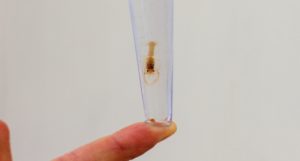Growth in Cornish speakers requires National Curriculum recognition, study says

The Cornish language has been informally taught at early years and primary level and is currently available in a limited way in Cornish schools
Any growth in the number of Cornish speakers will require schools to offer the language as part of the National Curriculum, new research warns.
Inadequate manpower means Cornish does not have enough of a stronghold within the primary or secondary system in Cornwall either within curriculum time, or as part of a club.
The analysis says this can change if school staff become more willing and confident to teach the language, and less reliant on outside providers. Key will also be acceptance of Cornish as a National Curriculum modern or ancient foreign language.
Kensa Broadhurst, from the University of Exeter, has researched how Cornish is being taught in Cornwall and has also identified the need for more educational materials.
The Cornish language has been informally taught at early years and primary level and is currently available in a limited way in Cornish schools.
Recently, new programmes have been developed which aim to increase the presence of Cornish. Since 2016, Cornwall Council has contracted the company Golden Tree to develop and support the teaching, learning and use of Cornish. The primary school programme ‘Go Cornish Bronze, Silver and Gold Awards,’ offers language and cultural support for schools to implement their own teaching sessions and place the Cornish language at the heart of whole school policies.
Early indications show the growing interest of primary schools to include Cornish within their provision and there is a growing hope that any success of the ‘Go Cornish’ primary school initiative be used in future discussions with Cornwall Council regarding greater inclusion of Cornish with its overall educational policies.
Go Cornish is designed for initial delivery by teachers or teaching assistants with no prior knowledge of the language. Support and resources are all provided for free via a secure members’ website or portal. By May 2023 fifty-one schools were signed up, with a potential 10,000 children able to access the programme.
Golden Tree also hope Cornwall Council can accept Cornish as a formal language for the primary curriculum and would like the opportunity to offer basic formal exam qualifications in Cornish to teachers.
Ms Broadhurst said: “The wording on the National Curriculum states ‘teaching may be of any modern or ancient foreign language’ and I consider Cornish to fit into that category. The WJEC, one of the United Kingdom educational examination boards, provides some basic formal examinations in Cornish.
“If the Golden Tree programme continues to grow it will have an effect on the demand for Cornish to be taught more widely in both early years and secondary education. If children can learn a little Cornish before primary school, this would allow for even more development at that level.
“Learning a language solely through the medium of grammar books and dictionaries only gives an artificial flavour of the range of use in a particular language. We should seek to provide as diverse a range as possible of education, and educational materials, to preserve the language as a living being, fit for purpose in our everyday lives and to better reflect the purposes for which it was originally used.
“The availability of teachers and quality educational resources remain one of the biggest problems. Remedying this would necessitate the provision of training programmes for teachers and a wide variety of language materials.”



